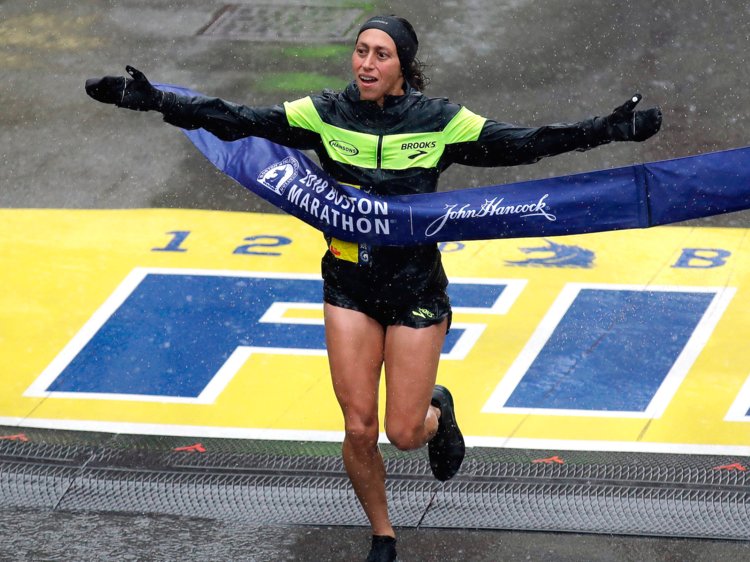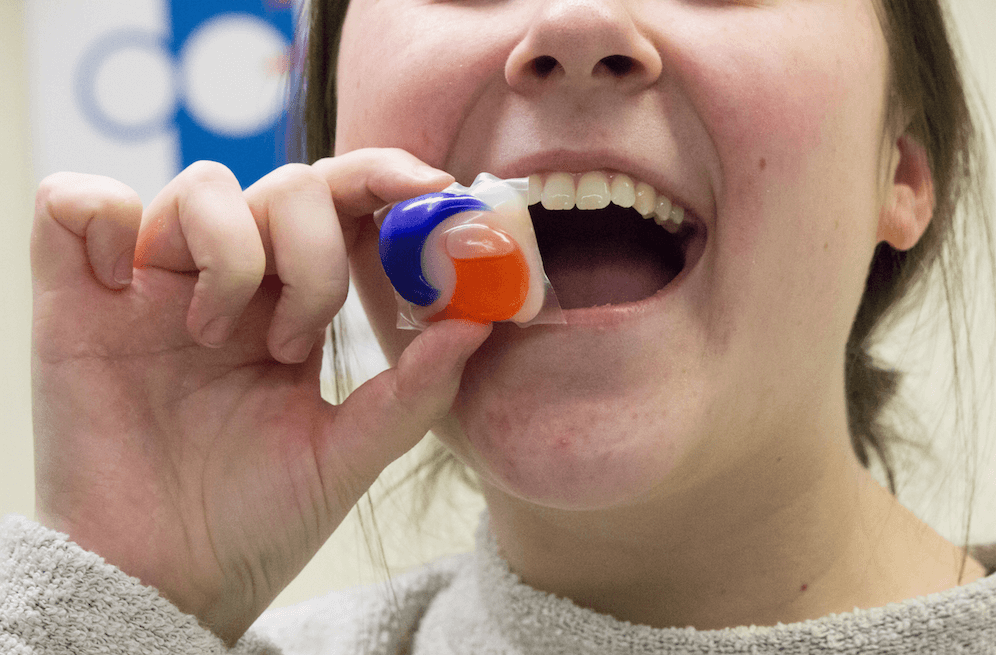Tag: Sarah Kelley ’18
Tangents and Tirades
by The Cowl Editor on May 3, 2018
Opinion

Fall in Love with Writing
Having been assigned my last opinion piece to be published in The Cowl this week, and having absolutely no clue what topic would be the best way to wrap up my experience as a writer and editor, it seemed fitting to write about the difficulties of writing—difficulties that cause some students to hate the writing process and cause others to fall in love with it.
Writing can be frustrating. Trying to express your own ideas, that you may not fully understand yourself, to an unknown and unassuming audience is daunting. Oftentimes we fear critique or judgement when others comment or question our writing.
Writing is a process. Although many of us have become experts over the years at banging out a five- or 10-page paper in a day (or night), strong writing asks us to take time, to commit ourselves, and to stick with it even when we may want to throw in the towel, burn that paper, or vow to never take an intensive writing course again.
Yet, despite these difficulties, there is no denying that writing is powerful. Being able to clearly communicate your thoughts, ideas—and when writing for a newspaper—the truth, with a greater audience is an invaluable skill that no one can ever take away from you.
So, do not deny yourself this skill. Embrace the frustration, fall in love with critique, and take the time to recognize that writing is not a one-stop shop, but an ongoing practice—that, whether or not we want to admit it, will follow us throughout our lives in some way or another.
-Sarah Kelley ’18
It’s O.K. Not to Know
The approaching summer promises students sunshine and relaxation. Those students who have secured a job for the summer feel much more confident and excited about their future income. Seniors who have signed on to a full-time position have even more reason to be enthusiastic as they finish their finals one last time before they enter the real world.
However, seniors who might not have the slightest clue as to their future prospects should not worry. Having a job is not a prerequisite for enjoying summer vacation. In fact, taking time away from immediate responsibilities and thinking about long-term goals can be helpful for knowing which career paths are most appealing.
Even taking an extended period of time away from thinking about a career can help you realize what will form a fulfilling and worthwhile time during your adult working life. Going on an adventurous road trip or backpacking through Europe could be experiences that will allow you to clear your mind and focus on what really makes you happy.
Other activities such as volunteering or making up for lost time with old friends can help you remember what you are passionate about and steer you towards a career which will continue to motivate and inspire you throughout your life.
Do not despair if your immediate career prospects are somewhat cloudy at the moment. Take this upcoming summer to find what fulfills you and will lead to many years of happiness. Make the most of the sunshine of new possibilities.
-Kevin Copp ’18
Never Too Late to be Confirmed
My experience with the Catholic faith is a bit different from most of the students at Providence College. My freshman year I did not come into the College affiliated with any specific religion or particularly concerned with the idea of God in any sense.
One year later, I just received my first Holy Communion and simultaneously was confirmed through Providence College’s Rite of Christian Initiation of Adults (RCIA) program. Led by Father Dominic Verner, O.P., and Sister Anne Franches Klein, O.P., the RCIA baptized, gave the first communion, confirmed, and accepted into the Catholic Church over 30 students this year—their largest class in the history of Providence College.
I was not alone in my journey, as so many students shared the same sentiment. God came into our lives unexpectedly, and it has been an amazing journey since. Throughout the process, I have learned that one is never too old to find their faith or reconnect with it.
Finding one’s faith at an older age is a beautiful thing because we took it upon ourselves to find our spirituality when many of us grew up without it. For those that believe they are too old to become confirmed, I say that that is simply not true. The love that God holds for all of us has no bounds and does not discriminate against anyone based on age.
RCIA opened me up to beautiful connections with people I otherwise would not have met and it opened up my relationship with faith in ways that were completely unexpected.
A year ago, if someone had told me I would be getting confirmed and attending church, I would have looked at them with bewilderment and amusement. So for those considering becoming confirmed—it is never too late.
-Laura Arango ’20
Writer vs. Writer: Communications Major
by The Cowl Editor on April 26, 2018
Opinion

By Taylor Godfrey ’19
The importance of a liberal arts education has always been to learn how to read, especially at a school like Providence College. From Aristotle to modern and postmodern texts, the humanities have always given students in all departments a unique set of skills that they may not get in pre-professional programs. These skills are something that may be lost if a proposed communications major is added to the curriculum at PC.
The study of communications is not complete without the study of literature and history. Literature may seem archaic in the fast-moving modern world of breaking news and 140-character tweets, but it is an important way that humans have communicated for years and continues to be an important method of communication today. Without the background of English literature, writing would lack the depth and resonance that comes with studying the history of literary communication.
Not to mention the practical problems that would arise from implementing a communications major. “I think it will devastate us,” said chair of the English department Dr. Bruce Graver, citing a concern that students might gravitate towards a communications major, thinking it would prepare them to write professionally without the pages and pages of reading that the English major entails. For a major that has been declining over the last 10 years and has only recently been increasing in enrollment, Graver worries that a communications major could be a difficult blow for the English department.
An increased emphasis on the practical side of communications and a decreased emphasis on the humanities would also affect programs such as DWC. If more strictly professional writing and communications faculty are hired in departments, such as the English department, who will be left to teach DWC? In that case, “you are writing the death warrant of the DWC program,” said Graver.
That is not to say that the humanities are not responsible for creating more classes and programs that fit better with the modern technological world, for which Graver said the English department is trying to push. Simply adding more classes focused on digital media and technological communication does not negate the importance of Shakespeare or Byron. Adding a major that will likely pull students away from this literary background is not doing them any favors.
“English majors go into communications fields regularly,” Graver said, rebuffing the prevalent idea that English majors have limited career options. The solution is not to create a new major that might hurt departments such as English or history, but instead to foster more growth within the departments themselves to help them move forward into the digital age, while retaining a firm liberal arts background that will ground students’ writing in history and culture.
By Sarah Kelley ’18
For countless students thinking about attending Providence College, there is a major allure to the liberal arts education that the College promotes. Students are required to take a diverse range of classes and must engage in an interdisciplinary approach to learning which is truly unique to PC.
But for some students, something seems to be missing: a communications major. This is especially true for those interested in applying their reading, writing, analytic, and critical thinking skills outside the realm of traditional English courses.
While on the whole, Providence College’s English department promotes students’ analytic, communicative, and research abilities through their degree programs in creative writing, secondary education, and English literature—the course offerings do not promote the application of these critical thinking skills outside of the limited list of course offerings.
The lack of academic freedom this situation creates rings especially true for those students looking to develop their skills in specific areas of communications studies, such as: strategic communications, advocacy and social activism, digital communications, health communications, and countless other concentrations this dynamic field encompasses.
This reality does not deny the major value that an English degree provides for so many students interested in a wide range of career fields at PC. But in order to continue promoting the kind of liberal arts education that is foundational to the College’s mission, faculty and administration must recognize the need to expand academic options for students interested in applying many of the skills an English degree encompasses outside of the English classroom.
In light of the recent actions taken by PC professors Heather McPherson of the art department, and Wendy Oliver of the theater department to co-chair a committee working to propose a communications major, the College must seriously consider the major opportunity this field of study presents.
As Oliver commented, “We believe that the need for critical thinking and challenging the prevalence of disinformation so prevalent in the media today can be specifically addressed within a communication major…”
A communications major would strengthen PC’s interdisciplinary approach to learning, as Oliver explained, it would be embedded within, “the existing liberal arts curriculum.” It would also allow for an expansion of students’ academic freedom, providing a new pathway for students interested in both the oral, written, and visual arts.
The College should not ignore the overwhelming benefits this kind of academic program could provide to both the students and the school as a whole.
Tangents and Tirades
by The Cowl Editor on April 19, 2018
Opinion

Technology Allows Socialization
Walking around campus between classes, you can often see a sea of students, heads down, staring at the lighted screens of their smartphones. Images like this are often used in newspapers and magazines to bemoan the disconnectedness of life in the Internet age. Writers often lament the way that young people are constantly on their phones instead of speaking to the people around them.
But what you cannot see when you look at this scene is all of the socializing that people are actually doing through technology.
The world has never been more open or accessible than it is right now. It can be just as easy to talk to a person halfway across the globe as it is to talk to somebody in the building next to you. As someone who went abroad and made friends in different countries, being able to have a normal conversation on an instant messaging platform instead of waiting weeks and weeks to exchange physical letters is an amazing thing.
It is true that there definitely are ways to mindlessly waste time on your phone, but there were plenty of ways to do that before the advent of technology as well.
While that person staring at their phone or computer screen might not be talking to the stranger sitting next to them, they could be engaged in just as meaningful a conversation with someone on the other side of that screen.
-Taylor Godfrey ’19
Bathroom Buddy Storms Boston Marathon
While spectators and runners alike were taken aback by the horrendous weather conditions of this Monday’s 122nd running of the Boston Marathon, what was even more surprising was the sportsmanship and teamwork displayed by one elite American runner.
Over an hour into the race, 34-year- old Desiree Linden made the surprising decision to wait and be the essential bathroom buddy to American teammate Shalane Flanagan, after Flanagan abruptly stopped to use a port-a-potty.
While the two runners had been seen communicating throughout the early miles of the race, this bold choice to stop running and join her teammate embodied the kind of sportsmanship and teamwork that typifies the spirit of the Boston Marathon. Even though Linden had told news reporters she chose to wait, believing she too would soon fall back in the race, she provided invaluable support to Flanagan, helping her catch up to the lead pack.
The support and dedication Linden demonstrated to her teammate and to the sport of running ultimately allowed her to push forward in the race, becoming the first American woman in 33 years to win the marathon.
The magnitude of this kind of feat should not be understated. With 25 of the leading elite male and female runners not able to finish this year’s race, Linden sustained extreme mental and physical toughness in the face of unpredictable conditions throughout the 26.2 mile course from Hopkinton to Boston. Yet beyond this toughness, Linden’s choice to fulfill the role of bathroom buddy to Flanagan exemplified the importance of teamwork and solidarity that lies at the heart of the Boston Marathon.
-Sarah Kelley ’18
Teach-In: Great Event, Terrible Name
Glancing at the rows of white-clothed tables in ’64 Hall, students were noticeably absent from the “Teach-in” on April 9. Aiming for a young crowd filled with open minds and differing perspectives, the organizers instead received scores of middle-aged faculty, all agreeing and nodding their heads to one platitude after another.
If event organizers want a serious discussion infused with a true diversity of opinions, the event’s name needs to change. Not only does the name “Teach-in” confuse what the event actually entails, the word “teach” frightens those skeptical that the event is truly a discussion. Billed as a true dialogue, perhaps more than a spattering of perspectives will enlighten discussion, allowing a fundamentally good idea to reach its full potential.
Knowing nothing besides the name of the event, I had no idea what to expect filing into ’64 Hall. Fixating on the word “teach,” I assumed an hour of lectures lay in front of me, with the thought never crossing my mind that I would have to say a word. Yet the actual event format was the total opposite of what the poor marketing implies. It truly was a free-wielding discussion, serving as a venue for people to speak their minds and have assumptions challenged. While the largely uniform audience suffered from monotony, the potential exists! Why not bill the event as what it is: a discussion?
Similarly, if the goal of the event is to welcome new voices into a cloistered discussion, selling it as a “teaching” event deters those skeptical of social justice. In fact, it plays into the opposition’s fears, as paranoia distorts the word “teach” into “indoctrinate.” Cognizant of skepticism across the political spectrum, event organizers should assuage these fears, not pour gasoline on the fire.
-Nicholas Moran ’19
Tangents and Tirades
by The Cowl Editor on April 12, 2018
Opinion

Don’t Judge a Book by Its Cover
To some, the phrase “Human Library” might sound more like something out of Beauty and the Beast than an event held at Providence College. Images of fantasy aside, the Human Library is an annual event hosted by Students for Social Action that took place this past Sunday. The Human Library is an international organization committed to breaking down barriers and dismantling stereotypes through the sharing of stories.
At Human Library events, participants can listen to stories from human “books,” or volunteers, who wish to share their unique life experiences. Volunteers at PC’s event represented a diverse range of experiences such as, what it is like to grow up with deaf parents, working in the healthcare field, being a first generation American and college student, and living with a brain injury.
The mission of Human Library is incredibly important. In a time where communication through technology is the norm and people appear to capitalize on differences, the opportunity to speak face to face with someone with a different perspective can be invaluable. The event promotes empathy and tolerance in a way that cannot be replicated on social media or even in a real book. As PC strives to create a more inclusive community on campus and educate tomorrow’s leaders, events like Human Library can prove to be a true asset.
-Gabrielle Bianco ’21
Friar Students Already Give
This past week, the Providence College community came together for the 24-hour giving event, #FriarsGive, in the hopes of reaching a goal of 3,989 donors for each of the 3,989 PC students. Parents, PC athletics supporters, Friars of the last decade, PC alumni, as well as current students were all challenged to donate and participate in spreading the word of the event through social media.
While no one can deny the importance of charitable donations to support PC’s mission and its students, should students really be asked to make donations on top of the annually increasing rates of tuition and room and board paid every semester? Although the #FriarsGive website states, “Your participation as a PC student, not the amount of your gift, matters,” the various campus-based events, as well as the food and prize giveaways directed towards students definitely place at the least some sort of expectation on the part of the student body to make a gift towards the school.
While we cannot deny the reality of PC as being a tuition-driven educational institution, we can focus the efforts of #FriarsGive towards the charitable donations of members of the PC community who already graduated. What kind of financial position are college students in to make any more of a donation than what is already required of them to attend PC in the first place?
Instead of celebrating the number of student donations made during #FriarsGive Day, why don’t we instead take a moment to recognize the growing number of PC students who will be in mounting debt by the time they graduate? It’s time to shift the focus of #FriarsGive donation efforts away from PC students.
-Sarah Kelley ’18
More Mental Health Awareness
Last Wednesday National Alliance on Mental Illness (NAMI) sponsored an event called “Inside Mental Illness.” The discussion itself was enlightening and humbling as members of the community shared their struggles with depression, anxiety, and schizophrenia.
However, it was disappointing to see that not every single chair in the Fiondella Great Room was occupied. Providence College holds these events for students to attend, and it is troubling and saddening to see how few college students take actual advantage of all of the resources the campus provides. In fact, these events allow for students to recognize mental illness symptoms in not only themselves but also in their roommates and close friends.
If more students attended these events they might learn that certain behaviors —like sleeping too often or drinking too much—may be signs of something more serious. Campus events like these are important because mental illness is prominent in society and it is not going anywhere.
According to a spring 2015 report by the American College Health Association, two-thirds of students who are struggling do not seek treatment. One in four adults experience mental illness in a given year. That can be you, your roommate, your significant other, or anyone. It’s important for students to attend these events so that they can bring awareness to themselves and to those around them. The stigma needs to end!
-Laura Arrango ’20
Prioritize Public Safety: Increased Fines For Speeding Keep Drivers Safe
by The Cowl Editor on March 15, 2018
Opinion

by Sarah Kelley ’18
Opinion Co-Editor
While Providence College students and faculty were enjoying spring break last week, the state of Rhode Island was dealing with major pushback following reports of the impact of newly installed school-zone speed cameras in the capital city.
The speed cameras—initially approved by Rhode Island lawmakers through the passage of the Automated School-Zone-Speed Enforcement Act in 2016—are allowed to be installed within a quarter-mile of any school in the city. Through the use of these cameras, tickets are issued for vehicles caught operating at least 11 miles per hour over the designated speed limit Monday through Saturday between 6 a.m. and 8 p.m. The minimum fee for any speed violation starts at $95.
To most concerned citizens, while aggressive, this kind of legislation would appear to be a proactive way to slow down speeding drivers in some of Providence’s most vulnerable neighborhoods. Increasing drivers’ accountability in the city has proven crucial, especially following the tragic death of a Mount Pleasant High School teacher who was struck down while crossing the road next to the school in 2016.
Yet recent media coverage of the speed cameras’ impact on Providence and its citizens has shifted focus away from the importance of citizens’ safety, and towards the economic implications of this assertive policy.
Most recent traffic violation data has reported that between Jan. 16 and Feb. 22, 12,193 tickets were generated by five speed cameras located primarily around Mount Pleasant Avenue, Charles Street, and Thurber’s Avenue in Providence.
This statistic is alarming for the first 33 days of the city’s utilization of the speed cameras, and will likely increase if speed camera installment is expanded to other areas of Providence.
Yet as recent media coverage demonstrates, many citizens and lawmakers alike are not necessarily associating this statistic with a threat towards public safety, but rather with the economic implications for those drivers caught speeding.
Recent news coverage has reported citizens challenging the intentions of the policy with over 2,600 tickets scheduled on the docket for appeal in Providence Municipal Court this past Monday alone, with many calling the new speed cameras an easy method for the state to generate revenue.
Others claim the $95 minimum ticket is overly burdensome for many citizens to pay. Some lawmakers are now making efforts to rid the state of the cameras completely, such as Anthony Giarrusso, Republican representative from East Greenwich, who called the cameras a “government cash grab.”
While economic aspects of the new policy should not be overlooked or downplayed, there is a question of whether the media is justified in greatly ignoring the reality of public safety for the sake of citizens’ pockets.
How can we balance the punitive fines that are necessary for the promotion of citizens’ safety and responsible driving with the demands of the public to lessen the very disciplinary penalties that would allow for the speed cameras’ success?
Perhaps allowing for initial warnings before fines, or reduced fines, would do well to assuage the initial pushback. Councilwoman Sabina Matos has championed the idea of increasing public education, outreach, and improved signage for the program, to improve public understanding before more cameras are installed.
While there is no denying that more work needs to be done in order to improve the success and efficacy of speed cameras, as well as to ensure the wellbeing of Providence citizens, media, lawmakers, and citizens alike should not overlook the reality of public safety, especially in school zones, for the sole sake of economic interest.
Ladies Celebrating Ladies: Galentine’s Day Empowers Women, Promotes Friendship
by The Cowl Editor on February 15, 2018
Opinion

by Sarah Kelley ’18
Opinion Co-Editor
From January to mid-February every year, we are reminded (whether we like it or not) that the season of love is upon us.
While many view Valentine’s Day as a romantic opportunity for couples to celebrate their love and relationship, most would agree it also forgets about the rest of the romantically uninvolved segment of society—leaving them alone to eat heart-shaped chocolates sent by relatives, scroll through Instagram posts of cute couples, reflect on their single relationship status, or utilize any of the countless coping mechanisms to simply get through this day of “love.”
From Valentine’s Day cards and chocolates filling the aisles of convenience stores, to restaurants promoting couple’s dinner deals, escaping this over-advertised, consumer-driven celebration of romantic love can often seem impossible, and for many singletons out there, even depressing.
But one recent holiday trend has revolutionized the season of love for women—single or taken—reminding us romantic relationships are not the only ones worth celebrating.
Galentine’s Day, the annual celebration of female friendship, began as a light-hearted, fictitious holiday created by the television character and star of Parks and Recreation, Leslie Knope.
On the 16th episode of Season 2, Knope explained the holiday in her own words, “What’s Galentine’s Day? It’s only the best day of the year! Every Feb. 13, my lady friends and I leave our husbands and our boyfriends at home and we come and kick it breakfast-style. Ladies celebrating ladies. It’s like Lilith Fair, minus the angst. Plus frittatas.”
But what began as a television celebration of gal pals has quickly turned into a genuinely observed holiday, gaining momentum and popularity.
Galentine’s Day has become not only a day to forget about one’s relationship status and the expectations of Valentine’s Day but more importantly has provided women everywhere with an opportunity to celebrate another important kind of relationship in their lives: female friendship.
Jenna Marsala ’18 commented on the impact of Galentine’s Day, describing how “It takes away from Valentine’s Day, especially for individuals who are not dating anyone, and instead focuses on the importance of female empowerment.”
Samantha Keating ’18 also commented, “Valentine’s Day is often taken very seriously, especially by its portrayals in the media. Galentine’s Day creates a more light-hearted, but still equally important holiday to celebrate female friendships.”
Taking the time to appreciate and celebrate the love and support of lady friends promotes positive female empowerment and reminds girls and women of all ages of the importance of embracing love for someone aside from just a significant other. Especially during a time of the year when romantic relationships are over-advertised across social media and television, Galentine’s Day provides a timely reminder that there are other, equally important relationships worth recognizing.
Combine the importance of celebrating female empowerment with the appeal of brunch, and there is no wonder why Galentine’s Day has and should continue to be a holiday of growing importance and meaning.
And within a larger societal context, the movement towards empowering women in all parts of society intensifies the significance of this growing holiday.
With social movements such as #MeToo and Time’s Up championing the importance of uplifting women, and all individuals, giving a voice to the voiceless, and combating the social inequality and injustices have previously long been silenced and ignored. Galentine’s Day is one small but important example of the pressing need for women to recognize their own strength as individuals and the power of female friendship.
Tangents and Tirades
by The Cowl Editor on February 8, 2018
Opinion
Keep the Ball “Black and White”
The Black and White Ball is making a much anticipated appearance later this month, thanks to the Board of Programmers (BOP). That being said, is it really going to be a Black and White Ball?
Right after the dance was announced, BOP cleared up some wardrobe confusion by expressing that students can wear any color they want. They are not highly encouraged to just wear black or white like last year.
Because of this change, the Black and White Ball is not a black and white ball anymore.
Although it is nice that BOP decided to take the theme in a completely different direction, they should have renamed the dance to something more inclusive.
Names like sophomore Friar Ball or the freshman Spring Fling would be perfect for this type of school-wide dance. They are simple, flexible, and do not imply a specific theme or color scheme, unlike the Black and White Ball.
While this is definitely not the most pressing issue on campus at the moment, it is a little confusing. If BOP wants to keep the name of the dance the Black and White Ball, students should then be highly encouraged to wear black and white. However, if BOP does not want to restrict students to certain colored attire, they should consider renaming the event.
However, regardless of what color students wear, the Black and White Ball is still going to be a night to remember.
So, what color will you be wearing?
-Katherine Torok ’20
At Least We Still Have the Memes
As Patriots fans are mourning their way through this tragic week for New England, we can perhaps still take away at least one positive from Super Bowl LII: all of the memes that have come and will come from Justin Timberlake’s Super Bowl selfie with a young fan.
If you happened to miss his halftime show, in the midst of a compilation performance of throwbacks and new songs (and even a commemorative Prince performance), JT walked up into the stadium seating to sing and dance with fans.
During this celebration, Timberlake posed for what appeared to be a simple selfie with a young boy. Yet after the photo was taken, the boy’s reaction was anything but that of a happy fan.
Totally frozen, the boy continued to stare at his phone despite JT standing right next to him. Whether he was in awe, complete shock, or in denial of the selfie that had just been taken, this young boy could barely lift his eyes from his phone screen. An expression of sheer confusion seemed to take over his face.
After this was captured on film, social media has done what it does best, creating countless memes narrating this boy’s experience while he stared into his phone in the midst of Justin Timberlake’s performance. So while we may cry over the Super Bowl, we should not forget to smile at the memes we now have from the halftime show.
-Sarah Kelley ’18
#TimesUp Grammys
The Grammy Awards, while an entertaining tradition, have unfortunately become another brick wall women have to face on the long-standing and challenging road to gender equality. Only one woman was broadcasted receiving a solo Grammy award during the 60th Grammy awards show this past weekend.
When confronted about the lack of inclusion in the awards show, Neil Portnow, the Recording Academy president, responded with a rather insensitive and ignorant response: “[They need] to step up because I think they would be welcome.” In light of the recent #MeToo and #TimesUp movement, it is not only morally incorrect, but obviously false to say that women have done nothing besides “step up” this past year.
To make matters worse, the Academy’s hypocrisy in terms of the gender equality movement was evident as they hosted Kesha’s performance of “Praying,” a powerful audio and visual display of the #MeToo movement while simultaneously snubbing Kesha for an award. Kesha gave an emotional performance that referenced the abuse she had to endure at the hands of Dr. Luke, an American music producer whose colleagues were also in attendance at the awards show.
It seems that the Academy supports the #MeToo and #TimesUp movement on paper because it is the path of least resistance that will grant them the least amount of problems. However, when it comes to actually taking meaningful strides towards equality—they fall short.
-Laura Arango ’20
Tide Pods Are Friends, Not Food
by The Cowl Editor on February 2, 2018
Opinion

by Sarah Kelley ’18
Opinion Co-Editor
During the month of January, many Americans may reflect on how far we have come, both as a nation and as individuals. We often assess the past year in terms of economic, social, and political improvements or downfalls, and we look towards the upcoming year as an opportunity for new goals, aspirations, and intentions.
Yet, one recent and alarming trend has prompted many Americans to question how far we have really come as a society in 2018, and if we are really moving forward: the Tide Pod Challenge.
What began in 2015 as a darkly humored internet meme that jokingly presented the brightly colored detergent packets as delectable snacks, has quickly developed into a perverse and potentially fatal challenge. Teenagers today are posting videos of themselves consuming Tide Pods on Facebook, Twitter, and other forms of social media in order to “complete” the Tide Pod Challenge.
While many people may not realize that the Tide Pod Challenge is more than just an internet joke, the consumption of these potentially lethal detergent packets is cause for not only public health concern, but also for a serious questioning of where some of our young people stand in society in relation to this blatantly self-harming behavior.
In the first four weeks of January alone, there have been 134 reported cases of intentional detergent pod consumption by teens aged 13-19. That statistic exceeds the total number of reported cases of single load laundry packet consumption during the entire year of 2016.
And while the danger of young children and infants consuming these pods—mistaking them for bright, candy-like treats—has already been recognized and warned against, the same cannot be said for intentional consumption by teenagers.
Just last week the American Association of Poison Control Centers (AAPCC) issued a press release detailing their high alert for “Intentional Exposure Among Teens to Single-Load Laundry Packets.”
AAPCC’s CEO and Executive Director Stephen Kaminski explained, “Since our first alert to this life-threatening activity, the trend of intentionally ingesting single-load laundry packets has increased in its popularity despite repeated warnings… We cannot stress enough how dangerous this is to the health of individuals—it can lead to seizures, pulmonary edema, respiratory arrest, coma, and even death.”
Procter & Gamble—the corporation from which Tide Pods originated—is working to remove the harmful videos and images of teens performing the challenge from social media networks, as well as to provide safety information to young people about their cleaning product. Yet their loss of brand control is proving overwhelmingly obvious.
In response to the increased consumption rates, many American businesses are now even profiting from the dangerous trend, in creating and selling safe-to-consume Tide Pod-themed donuts, pizzas, and alcoholic beverages. This capitalistic response to a self-harming behavior seems almost as disturbing as the behavior itself.
Yet at the heart of this alarming spike in intentional Tide Pod consumption by teens in 2018 lies serious questions that should not be ignored. Why are these young people exhibiting such harmful behaviors when the health risks associated with consuming Tide Pods are so obvious and great?
Is this trend a reflection of the impact of social media on certain vulnerable teens, so desperate for approval and “likes” that they will risk their own health for a positive response from peers? Does the challenge underscore a breakdown of some American families, as parents lose control of their teen children? Or does this alarming behavior reflect a freak trend in our nation’s youth, because of stupidity, lack of common sense, or some disillusionment with reality?
As individuals and as a society, the Tide Pod Challenge reminds us of the difficult but necessary issues that must be addressed in response to such an abnormally stupid and unashamedly harmful trend.
Featured Friar: Fernando Morales ’18
by The Cowl Editor on January 25, 2018
Features
Class of 2018 Remembers Classmate

by Sarah Gianni ’18
News Staff
The first week of the new semester at Providence College was marked with celebrations across campus. From students diving into new classes to the Rev. Dr. Martin Luther King, Jr. Convocation, campus was invigorated by the start of a new year. The first week concluded with another celebration on Sunday, January 21—a mass to celebrate the life of Fernando Morales ’18. The mass was held in St. Dominic Chapel at 11:00 a.m., with around 170 attendees, 50 of which were Morales’ family and friends. The mass was spoken in both Spanish and English, to honor Morales’ Puerto Rican heritage.
“Father Dominic gave an amazing homily, taking the time to talk with people who knew Fernando so that his words were beautifully tailored to honor him,” said President of Campus Ministry Keith Lee ’18. A team of students including Lee, Vice President of Campus Ministry Shannon Grady, Vice President of Student Congress Jenna Shanley ’18, and Executive Board Member of Campus Ministry Daniel Arteaga ’19 all worked to make the mass possible. “You could really feel the love and care in the air,” said Shanley. “What was really nice was a lot of men from the floor Fernando lived on freshman year came—it showed the unity that students have for eachother here.”
Aria Ross ’18 said she felt very moved by Morales’ mass, “It was great to see the connection between PC students and Fernando’s family and friends from other schools.” One particularly special component of the mass was Morales’ mother offering a notebook for guests to write down moments they had shared with Morales, as well as plans for their senior year.
“It was truly moving that Mrs. Morales cared so much about Fernando’s peers, and it makes him feel even closer to the Friar family,” said Shanley. May 2018 would have marked Morales’ graduation from the College.
“This mass was a wonderful way to remind the Class of 2018 of a friend that was lost, but is still a beloved member of the class,” said Lee. “It was a nice way to remember meeting Fernando our freshman year, and keeping him in our hearts as we go through our final semester at PC.”
President Winfrey? Our Country Does Not Need Another Celebrity President
by The Cowl Editor on January 18, 2018
Opinion

Photo Courtesy of Getty Images
by Sarah Kelley ’18
Opinion Co-Editor
Anyone who watched Oprah Winfrey receive the Cecil B. DeMille Award for lifetime achievement at the Golden Globes last week cannot deny the powerful message of hope Winfrey championed within her speech.
But why did so many of us interpret that message as a potential run for presidency? And why was “Oprah 2020” an immediate response?
As the first black woman to have received this lifetime achievement award, Winfrey made a moving acceptance speech that eloquently synthesized a number of urgent social and political topics—from racial equality and the value of the press, to issues of sexual abuse and assault within the #MeToo movement, and the importance of women and all individuals speaking their truth and telling their stories.
She called for a break in our society’s dominant ideology, which for years has silenced women from telling their stories, has maintained a cultural status quo of abuse and inequality, and has allowed for the maintenance of powerful male interests at the cost of justice and truth.
Yet, in Winfrey’s championing of “a new day…on the horizon” and a future in which women “become the leaders who take us to the time when nobody ever has to say ‘Me too’ again,” not only did her speech bring audience members to their feet, but it also brought about countless forms of inquiry regarding a potential run for the presidency.
This kind of speculation about the political implications of Winfrey’s speech raises serious cause for alarm in terms of recognizing where we are as a society under the current political atmosphere if we easily perceive a celebrity’s speech in such a presidential context.
These interpretations of, and reactions to, Winfrey’s acceptance speech seem to shift the focus of her message away from the collective stories and truths that must be told, and towards Winfrey’s political potential as an individual. Within this shift, we are to some extent losing the significance of her powerful message.
Winfrey’s speech was not intended to draw attention to herself as an individual, it was intended as a call to action for all individuals, to raise awareness and create social change towards a more equitable and just society.
And while the issues raised by Winfrey’s speech are inextricably political, that does not necessitate a potential run for the presidency on her part.
The strong, immediate response of “Oprah 2020” to this acceptance speech seems in some way to reflect the shifting political norms of American society regarding the position of the presidency under the current political environment.
It is hard not to ask oneself whether President Donald Trump has really altered our political reality to such an extent that we would now readily accept another celebrity’s potential run for the presidency.
And while no one can deny the brilliance and success of Winfrey as a businesswoman, actress, producer, and philanthropist—and overall human being—we also cannot deny her general lack of political experience.
The power of Oprah’s speech should remind us that we must all do our part to invoke and sustain social change in the U.S. Yet that does not mean that we should begin to readily fall back on celebrities as possible political leaders.
